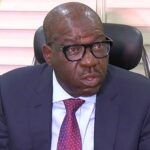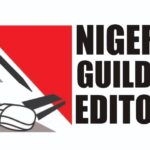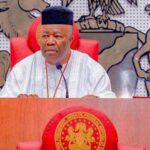The long agitated and advocacy for state Police by Nigeria governors, to complement the Nigeria Police Force, the Military and other security agencies in tackling insecurity in the 36 states of the federation, is gaining momentum with a surging hope of coming to fruition at the skyline.
President Bola Ahmed Tinubu and the governors had on Thursday February 15, 2024 discussed the state police issue with assurance by Mr President of discussing further at the National Executive Council and with synergy with the National Assembly for probable actualization.
The House of Reps had on Tuesday, February 21, 2024 passed the state police bill into second reading at its plenary.
The question is; is state police the panacea for the multi-faceted insecurity bedevilling Nigeria? And can it do the magic of restoring security and peace in the country?
One of Nigeria’s greatest and foremost challenges right from inception is insecurity. A former Head of Military Junta, General Ibrahim Badamosi Babangida, described the situation saying, “Nigeria, my dear country, is not a stranger to crisis, nor is she immune to it. In a profound sense, she can be said to have been created out of crisis, a nation state that will continue to subdue and transcend crises.”
There are many causes of insecurity in Nigeria since independence such as:
REGIONAL RESENTMENT
The blocs that made up Nigeria are engulfed in mutual suspicion and resentment towards one another, orchestrated by the British colonialists’ forceful amalgamation of the country. This has tremendously inflamed profuse insecurity between regions, and often times breed tension, crisis and secession agitation. Then Prime Minister, Sir Abubakar Tafawa Balewa, said “Since 1914, the British Government has been trying to make Nigeria into one country, but the Nigerian people themselves are historically different in their backgrounds, in their religious beliefs and customs and do not show themselves any sign of willingness to unite…Nigerian unity is only a British intention for the country.”
On his part, Chief Obafemi Awolowo said, “Nigeria is not a nation. It is a mere geographical expression. There are no ‘Nigerians’ in the same sense as there are ‘English,’ Welsh or ‘French.’ The word ‘Nigerian’ is merely a distinctive appellation to distinguish those who live within the boundaries of Nigeria and those who do not.”
The resentment and suspicion were hugely responsible for the introduction of Northernization Policy after the introduction of Nigerianization by the Tafawa Balewa Administration; Operation Wetie – the violent political protests that ensued in Lagos, the Western Region, in October 1965 by virtue of the House of Assembly elections between the Action Group versus Nigeria National Democratic Party, NNDP. The protests metamorphosed into serious crisis where many lives were lost, making the Prime Minister to say “I wish I had the power to stop it.”
The suspicion and resentment led to the Benue 1965-1966 Crisis over the quest for Middle-Belt Region creation and the 1967-1970 Biafra war.
Major Gideon Orka’s April 22, 1990 Coup was informed by regional resentment, hence excising some states of the north from the country. The same resentment led to secession agitation movements such as; Movement for the Actualization of the Sovereign State of Biafra, MOSSOB, led by Ralph Uwazurike, but now overtaken by Independent People of Biafra, IPOB, led by Mazi Nnamdi Kanu, and the Odudua Republic led by Sunday Igboho.
There was also the Movement for the Emancipation of the Niger Delta, MEND, led by Henry Okah who is now in prison in South Africa. MEND claimed planting the October 1, 2010 bombs in Abuja.
It was the same resentment that led to the warning issued to Igbo by some Northern Youth to vacate the North in June 2017.
On several occasions, there were clashes in the Western, Eastern and Northern regions between the Igbo versus the Hausa and Fulani, and the Yoruba versus Hausa and Fulani. This resentment has made most Nigerians vulnerable in regions other than theirs.
RELIGIOUS IDEOLOGY
Religious ideologies and disparities have led to countless lives wasted in the country through ethno-religious crises, particularly between Christians and Muslims. Such crises were witnessed in Plateau, Kano, Kaduna, Taraba and some other states.
These same religious ideologies are making terrific impact on our elections as voting of elective office holders is mostly done on the basis of religion, ethnic and regions and not competence.
The same religious ideology gave rise to the Maitasine, Boko Haram and Islamic State of West Africa Province insurgencies. The adherents are ready to kill and be killed for their beliefs.
Nigeria is still battling these insurgencies.
POLITICAL THUGGERY
Some politicians who use thugs to bully opponents and win elections ended up having their thugs constituting nuisance by forming cult groups and terrorising communities, for instance; Sara Suka, Yan Kalari and so on.
Same politicians allegedly secure recruitment for their thugs in the Military, Police Force and the Nigeria Security and Civil Defence Corps where most of them breach the ethics of their job and perpetrate insecurity instead of stemming it.
UNEMPLOYMENT
Unemployment is a leading factor in the eluding security in Nigeria. It is hugely responsible for recruitment into insurgency groups, kidnappings and banditry. The Chief of Defence Staff, General Christopher Musa, said “Normally, it starts like criminality, gets to banditry and kidnapping, then terrorism and insurgency. That’s the trend. And it is always so when there is so much unemployment.”
DEMOGRAPHY
Increase in population with very few resources contributes to insecurity such as; land-grabbing and so on. US Charge De Affairs in August 2018 said at Crest Hotel that Nigeria will continue witnessing insecurity and onslaughts if nothing is done to boost the economy. The problem witnessed between the herders and farmers has to do with demography. The routes that the Fulani nomads and their cattle used to tread from the North to the South are no longer there, because houses have been built on them in some places and also tilled and used as farms in others.
The fallow fields speared for grazing are no longer there thus; resulting to herders grazing their animals on people’s farms which usually results into confrontation and onslaughts.
When communities are sacked, reports always revealed that the herders occupy the communities sacked.
INJUSTICE AND BAD GOVERNANCE
Alleged perceived injustice against ethnic groups and communities has led to insecurity in many fronts. For instance, Movement for the Survival of Ogoni People, MOSOP, felt injustice was done to them by the extraction of black gold by oil companies whose oil spill deprived them of farming and fishing and nothing was done to ameliorate their plight. Their agitation led to the deaths of some of their chiefs allegedly carried out by the agitators and the subsequent execution of Ken Saro Wiwa and others by the Abacha-led Junta.
Attacks on pipelines staged by some people in the South-South emanated from alleged injustices done to their communities by the Federal Government of using their resources to develop other parts of the country at the expense of theirs.
Bello Turji Kachalla, bandits’ Kingpin, alleged that he got into banditry to save his kinsmen in the north whom he said were being oppressed and nothing was done by the government to stem that. On several occasions, the Fulani claimed injustice was done to them by the media and the government as such, they take laws into their hands by attacking communities in the name of revenge. They said whenever their cattle are rustled and their kinsmen and children attacked, the media is silence and the government takes it lightly.
Oppressing political opponents by incumbents can lead to political crisis too. Peter Tosh said, “There will be no peace until man gets equal rights and justice.”
Can State Police resolve these issues and restore peace in the country? Dealing with bandits, kidnappers and onslaughts on communities only will not restore peace and security in Nigeria. We need to tackle regional, religious and ethnic resentments. Unemployment and the use of thugs in politics have to be tackled too, and many others. These are not the roles of the police. The police cannot dispense justice in governance, tackle demography, wipe out inordinate religious mentality, secure jobs for the teeming unemployed and end political thuggery.
In view of this, security experts, Major General Augustine Agundu; the Chief of Defence Staff, General Christopher Musa and a retired Police DIG, Wilson Inalegwu, suggested political solutions and good governance as means to ending insecurity in the entire country.
Wilson while speaking on the issue of State Police in Daily Trust February 15, 2024, said “If anybody thinks law enforcement alone can address the present security issues, the person is lying.”
Earlier, the Chief of Defence Staff said, “We have realised that the magic wand to address insecurity is good governance. Anywhere you have good governance, insecurity goes down. The security forces can only produce 30 percent. We can only produce an enabling environment.”
He said also, “The truth about the whole thing is the issue of good governance, equity, fairness, justice in everything we do. If we put these things in place, I can bet you Nigeria will be better.”
DIG Inalegwu (rtd) said, “They need to look into possible solutions. They are social issues; they are economic issues. So, law enforcement alone cannot work.”
Another aspect is the sophistication of some of the insecurity in terms of onslaughts. Can the state police withstand that?
The military, which is trained for the protection of territorial integrity of the country, on several occasions suffer casualties in the hands of bandits, insurgents and marauding herdsmen, can the state police perform better?
Can the state police man the security in Borno, Zamfara and others states? The essence of the police is to tackle domestic crimes and maintain peace in the country and not the art of war.
The Chief of Defence Staff said, “We are dealing with unconventional warfare.” Can the state Police deal with that? Can states have the resources to train the state police better than the Military and Nigerian Police Force? In view of this, Wilson Inalegwu said, “They want to kill Nigeria finally. That is not the way to address the present rate of insecurity. They are not serious.”
The State police can only congest our prisons the more by arresting criminals and charging them to court, because the solution to ending insecurity has been relegated. More prisons will be built because more youth will go into crimes when they have no jobs.
The governors being recalcitrant on using kinetic means of finding solutions to the insecurity of the country despite security experts’ counsels of good governance and political means, shows they have an ulterior motive.
Shehu Sani, a former Senator and social critic, alleged that the governors want the state police to perpetuate themselves in power.
A former Commissioner of Police in the Federal Capital Territory, Lawrence Alobi, was reported by Daily Trust February 16, 2024 as saying, “State Police would be established by state Houses of Assembly and that means the enabling laws defining their mandates, structure and control would be determined by state governors because as we all know, the houses of assembly are essentially puppets of their governors and they do as they are instructed.
“For governors, the bad boys are clear and fall into two categories. The first category comprises of politicians who want to contest state power with the governors or their chosen successors, for those in their second term. The second category consists of all persons who dare to criticize the governors or question their misdeeds.
“Over the years, many critics including journalists and civil society activists have been placed in arbitrary detention for daring to speak the truth about their governors. The governors cajole law enforcement officers to “deal” with their perceived enemies without having the Police Force totally under their control. I am convinced that most (not all) governors will jail all “enemies” if they have police forces they can control totally.”
The Chief of Defence Staff has advice that the right therapy be given to the right sickness to get good results.
Mazadu wrote from Abuja

 Join Daily Trust WhatsApp Community For Quick Access To News and Happenings Around You.
Join Daily Trust WhatsApp Community For Quick Access To News and Happenings Around You.


